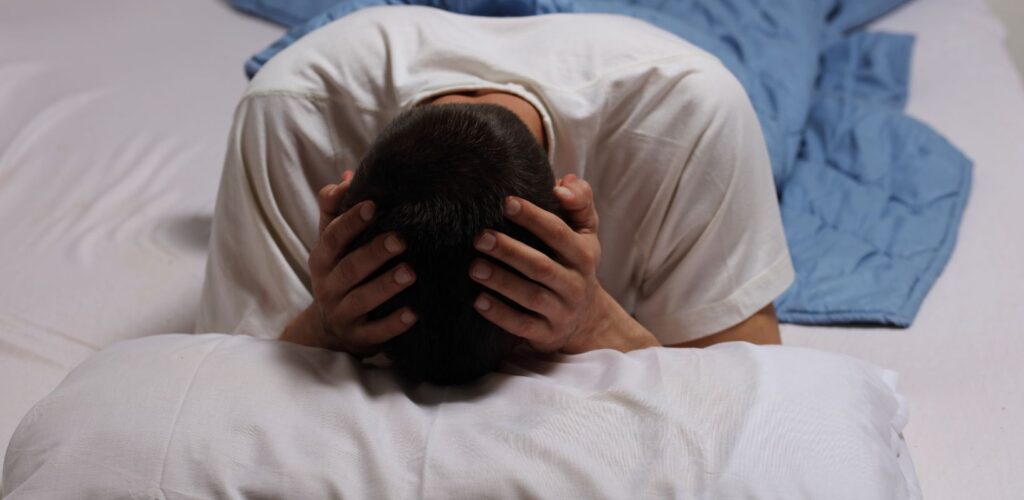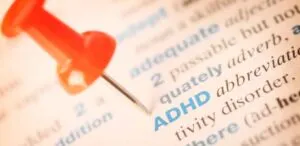Sleep Disorders:
Sleep disorders are conditions that affect the quality, duration, timing, and quantity of sleep, causing discomfort and impairment in daily functioning. Everyone might have sleep issues from time to time. But you may have a sleep problem if you experience any of the following signs:
- You frequently have trouble sleeping
- You are frequently fatigued during the day even if you have slept adequately at the night
- You have a reduced power to engage in routine everyday activities
Sleep-wake disturbances are frequently associated with other physical or psychological health conditions such as depression, anxiety, or cognitive difficulties. In other words, sleep issues may both contribute to or worsen mental health problems, as well as be a sign of other mental health issues. It affects affect around 70 million people in the United States.

How many Types of Sleep Disorders are there?
Many people suffer from sleep problems. The following is an overview of some of the most common sleep problems. If you or someone you know is suffering any of the following symptoms, it is essential to get treatment from a healthcare physician.
Insomnia.
Insomnia is one of the sleep conditions in which people struggle to fall or remain asleep. It is distinguished by the inability to initiate or sustain sleep. It can also take the form of early morning waking, in which the individual wakes up several hours earlier than usual and is difficult to fall back asleep. People suffering from insomnia show one or more of the following symptoms:
- Having trouble falling asleep
- Waking up through the night
- Waking up too early
- Sleeping is not refreshing
- Having trouble going back to sleep
Insomnia can be short-term (called acute or adjustment insomnia) or can last a long time (called chronic insomnia). Acute or adjustment insomnia can last anywhere from a single night to several weeks. Life pressures, disease, or environmental factors, for instance, severe temperatures or even noise, can all contribute to short-term or acute sleeplessness. In chronic insomnia, a person experiences insomnia at least three nights per week for a month or more. Depression, persistent stress, and nighttime pain or discomfort can all contribute to long-term or chronic insomnia.
Narcolepsy.
Narcolepsy is a condition that impairs the control of sleep and awakeness. It is defined by excessive daytime sleepiness (including periods of uncontrollable sleepiness) accompanied by abrupt muscular weakness. Strong emotion or surprise can cause rapid muscular weakness in narcolepsy.
These unforeseen sleep episodes can occur at any hour of the day and while engaging in any activity. Narcolepsy episodes have been referred to as “sleep attacks,” and they can occur in unexpected situations, such as walking or other types of physical activities.
Restless legs syndrome (RLS).
RLS is characterized by an uncomfortable “creeping” sensation felt in the lower legs but is frequently linked with aches and pains throughout the legs. RLS is a sleep condition marked by an acute, often irresistible need to move one’s legs. This sensation is caused by inactivity, such as lying down or sitting for a long time.
This sometimes causes trouble falling asleep and is helped by leg movements, such as walking around and shaking their legs or kicking. It can be associated with daytime drowsiness, irritability, and concentration issues.
Sleep apnea.
Sleep apnea is a serious sleep disorder that can significantly affect one’s breathing while asleep. It can go untreated for a long time, and people who have it can experience frequent breathing disruptions during the night. There are two types of sleep apnea: obstructive and central.
- Obstructive sleep apnea (OSA). OSA is the result of an airway obstruction, which often occurs when the soft tissues at the back of the throat compress while sleeping. Some common symptoms of OSA include snoring, fatigue, restlessness during sleep, gasping for breath while sleeping, and difficulty concentrating.
- Central sleep apnea (CSA). Although the airway does not close in central sleep apnea (CSA), the brain fails to signal the body to breathe, which is why this form is also known as central apnea. Since it affects the central nervous system, individuals with CSA may gasp for oxygen, but the majority report experiencing recurrent awakenings during the night.

What are the symptoms of sleep disorders?
If you encounter one or more of the following signs, you may have a sleep disorder. Do you:
- Have trouble falling asleep at night?
- Face problems staying awake while doing nothing?
- Excessive sleep during the daytime?
- Have issues with performance at work or school?
- Fall asleep while driving?
- Have trouble focusing at work, school, or home?
- Frequently hear from people that you appear sleepy?
- Have an irregular sleep and wake cycle?
- Face difficulty remembering things?
- Want to nap nearly every day?
- Have trouble controlling your emotions?
- Slowed responses?
Symptoms of insomnia can be:
- Episodic (with an episode of signs lasting one to three months)
- Persistent (having symptoms last several months or more)
- Recurrent (with two or more incidents within a year)
What causes sleep disorders?
Several things can contribute to sleep disorders. Although their underlying causes may vary, all sleep disorders have as their common factor a disruption or exaggeration of the body’s normal cycle of sleep and daytime wakefulness. The following could be the cause of sleep disorder
- Physical (such as chronic pain)
- Medical (such as asthma)
- Psychiatric (such as Alzheimer’s and anxiety disorders)
- Environmental (such as alcohol, noise)
- Working the night shift (biological clocks are being affected)
- Genetics (narcolepsy is genetic)
- Medications (such as anticonvulsants)
- Growing old (approximately half of all persons over 65 have a sleep issue)
- Allergies and respiratory problems
- Frequent urination
How can sleep disorders be diagnosed?
To diagnose insomnia disorder, the lack of sleep must disrupt daily functioning and occur at least three nights a week for a minimum of three months. A comprehensive evaluation for insomnia or other sleep issues might include a detailed patient history, a physical examination, and clinical tests such as a sleep study.
One useful tool is a sleep diary, where you can record your bedtime, nighttime awakenings, and morning awakenings. This helps you assess your sleep quality and patterns, highlighting how often your sleep is disturbed.
Another key assessment is a sleep study, or polysomnography (PSG). This test electronically monitors and records specific physical activities during sleep, such as oxygen levels, body movements, and brain waves, to understand their impact on sleep. Additionally, an electroencephalogram (EEG), which is part of the polysomnogram, evaluates brain electrical activity to identify any potential issues related to sleep.
By understanding these diagnostic tools, you can take the first steps toward improving your sleep health and overall well-being.

What are some recommendations for a restful night’s sleep?
- Make your bedroom comfortable, cool, quiet, and dark to create the perfect sleeping environment
- Avoid thinking negatively before sleeping
- Remove electronic gadgets, such as TVs, computers, and smartphones
- Establish a normal sleep and relaxation routine
- Be consistent in going to bed at the same time each night and getting up at the same time each morning
- Limit nap time
- Limit your intake of coffee and alcohol
Novus Beginning Psychiatry: Your Path to Health and Wellness Starts Here!
We understand that navigating the complexities of mental health can feel overwhelming, but you don’t have to face it alone. At Novus Beginning Psychiatry, we’re here to support you every step of the way. Whether you’re seeking therapy, medication, or a combination of both, our compassionate professionals are dedicated to helping you find the path to a happier, healthier life.
Our highly skilled psychiatrists are experienced in a wide range of mental health conditions, including anxiety, depression, bipolar disorder, OCD, PTSD, ADHD, autism, and more. We offer evidence-based therapies that have been proven effective in helping individuals overcome their challenges. From cognitive-behavioral therapy (CBT) to couples/family therapy, we utilize the most up-to-date techniques to empower you on your healing journey.
We also recognize that medication is vital in managing certain psychological health conditions. Our team includes Dr. Nibras, who is a board-certified psychiatrist well-versed in medication management. He works closely with you to develop a comprehensive treatment plan, as we believe in the power of personalized care.
So, take the first step towards a brighter future. Contact us today to schedule an appointment. Our friendly staff is ready to assist you in finding a convenient time to meet with our dedicated professionals. Call (832)856-4718 and let us help you take charge of your mental well-being.
Come and visit us at one of our locations in person or meet us via telepsychiatry/online!
We’re here to help in Texas, ready to meet you in person. If you’re unable to make it in person, don’t worry, we’re also available online, so you can meet us easily from the comfort of your own home. Whether you prefer to see us face-to-face or connect with us online, we’re here to assist you every step of the way.
Address in Sugar Land
120 Eldridge Rd Suite D, Sugar Land, TX 77478
Address in Katy
23410 Grand Reserve Drive, Ste. 401 & 402 Katy, Texas 77494



